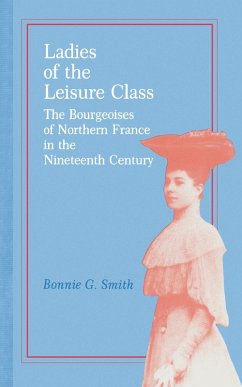In a social and cultural study of nineteenth-century bourgeois women in northern France, Bonnie Smith shows how the advent of industrialization removed women from the productive activity of the middle class and confined them to a largely reproductive experience. Out of this, she suggests, they created their own world, centered on domesticity, family, and religion. To understand these women, the author argues, it is necessary to examine their world on its own terms as a coherent whole.
Professor Smith draws on demographic, psychoanalytic, anthropological, linguistic, as well as historical insights and uses a variety of evidence that includes personal interviews, photographs, letters, genealogical records, and traditional archival sources. Part One outlines the transition from mercantile to industrial manufacturing that terminated the relationship between home and business and that separated the sexes according to their respective functions. Part Two concentrates on the lives of the women following their acceptance of an exclusively reproductive function and shows how the interdependence and fusion of household chores, religious values, and social conscience fostered a unified cultural system. Part Three, then, explores the propagation of this domesticity by the convent, as the primary educational system, and by the sentimental novel, as the vehicle most suited for an ideological expression of domestic life.
Professor Smith draws on demographic, psychoanalytic, anthropological, linguistic, as well as historical insights and uses a variety of evidence that includes personal interviews, photographs, letters, genealogical records, and traditional archival sources. Part One outlines the transition from mercantile to industrial manufacturing that terminated the relationship between home and business and that separated the sexes according to their respective functions. Part Two concentrates on the lives of the women following their acceptance of an exclusively reproductive function and shows how the interdependence and fusion of household chores, religious values, and social conscience fostered a unified cultural system. Part Three, then, explores the propagation of this domesticity by the convent, as the primary educational system, and by the sentimental novel, as the vehicle most suited for an ideological expression of domestic life.
Dieser Download kann aus rechtlichen Gründen nur mit Rechnungsadresse in A, D ausgeliefert werden.









